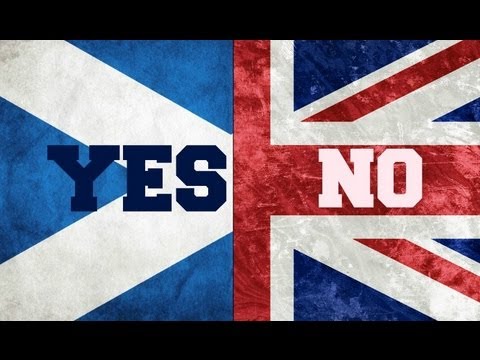The Aftermath of the Scottish Independence Referendum

The Scottish Referendum has ended, and with it, Scotland’s hope for an independent nation.
October 3, 2014
Scotland rejected independence on September 18th, 2014 in a referendum, with 55% of voters choosing to stay within the United Kingdom. The 307-year-old union between Scotland and the United Kingdom has now officially survived, thus preventing further fragmentation of Europe.
But while the polls are closed, the debate about devolution of power (the transfer of authority by central government to a regional administration) to Scotland certainly is not.
“This referendum may have ended one debate in Scotland – for now. It has, however, lit the touchpaper on the explosive question of where power lies in the UK”
— BBC's Nick Robinson
Here’s a quick recap of all the major points in the Scotland Independence Referendum.
When did Scotland become a part of the UK?
The Act of Union in 1707 united England and Scotland into one country, the United Kingdom of Britain.
Why did Scotland join the UK in the first place?
Scotland and England have a complicated history. In fact, they were at near constant war before they united. Succinctly, Scotland needed an economic stimulus. Scotland’s finances were in disarray after a failed attempt to colonize Panama.
Why did this vote for independence happen?
Back in 1999, the UK parliament in London began to transfer some small powers to Scotland, Wales, and Northern Ireland. In 2009, Scotland’s parliament decided to go further; they started pushing for an independence vote. And then in 2012, British Prime Minister David Cameron agreed to allow the referendum to take place.
What question were voters asked at the referendum?
The ballot was simple, really. But it was a vote that captured global attention; it was a polarized choice, one with infinite implications. It was just one question with a yes or no answer: “Should Scotland be an independent country?”
What was the argument for voting ‘yes’?
Supporters of Scottish independence wanted direct, not indirect, control over their domestic and foreign affairs. This was hard to come by with a Conservative Party ruling in Parliament; the normal left-leaning Scots tended to disagree with most of the rightist rulings.
What was the argument for voting ‘no’?
Being part of the United Kingdom gives Scotland a more vocal say on the world stage through major alliances such as the European Union. They also purport that the economy will be far better; these pro-union advocates believe that maintaining the union will secure Scotland’s financial future, what with the use of the stolid British pound.
Is anyone resigning because of this?
Alexander Salmond, First Minister of Scotland, threw his support behind the dream of an independent Scotland. Politically, Salmond was the foremost proponent of Scottish independence, repeatedly calling for a referendum on the issue. However, the “Better Together” Campaign’s 2 million votes overpowered the Yes Campaign’s 1.6 million. And with the Yes Campaign’s demise, Salmond has announced that he will step down as First Minister; he won’t seek re-election when the Scottish National Party elects its next leader.
So, who’s benefiting from this?
The British Prime Minister for one is reaping the political benefits of having supported the winning side. Before the referendum, David Cameron wrote an opinion piece in the Daily Mail, a national British newspaper, beseeching the Scots for a “No” vote. He wrote: “Let no one in Scotland be in any doubt: we desperately want you to stay; we do not want this family of nations to be ripped apart.” After the results of the referendum were published, David Cameron stated, “I am delighted. It would have broken my heart to see the United Kingdom come to the end.”
What does it mean for America?
As Scotland did not gain independence, our foreign relations with the UK will remain the same. One area that was of major concern for President Obama was the U.S. nuclear submarines that are based about 20 miles outside of Glasgow. Scots are against the base; had they become independent, they might have tried to move it.
I hope that cleared things up, Mustangs!






















Hannah Sutherland • Oct 19, 2014 at 2:45 PM
Hello! I’m Hannah Sutherland and I am the Online Editor-in-Chief of El Modena High School just down the road in Orange. We as a staff are in the process of improving our site’s design and content, and attracting more viewers onto it. Do you have any suggestions for website design? I would really like to know more about your newspaper. Thanks!
Heather Gammon • Nov 5, 2014 at 7:45 AM
Your site looks great and we should be taking advice from you. Thank you for the positive feedback